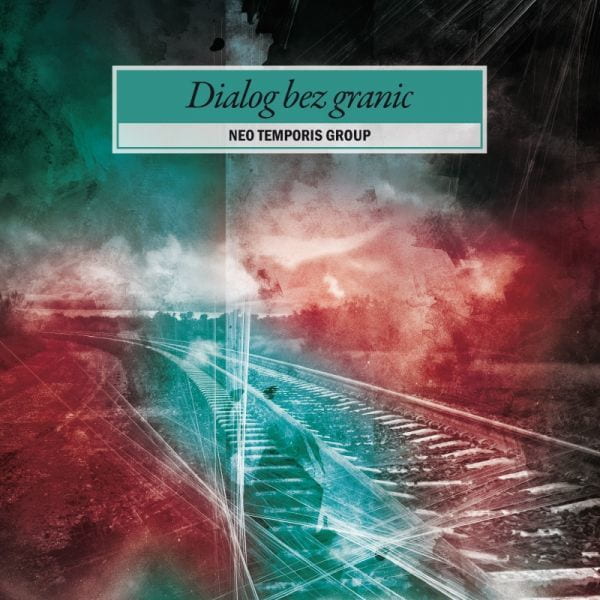Neo Temporis Group Dialog bez granic
Jerzy Kornowicz: Ekstrema dla 11 wykonawców; Bohdan Sehin: Talos na kwartet smyczkowy; Maksym Kolomiiets: Supremus na zespół 11 instrumentów; Dariusz Przybylski: Green and Maron. Hommage a Mark Rothko op.71b na kwartet smyczkowy; Oleksii Shmurak: I have lost my Eurydice the four lost dances na zespół 11 instrumentów
Ensemble Nostri Temporis, Neoquartet, Jędrzej Kacprzyk – double bass
DUX 1360
In March 2013, during the first Ukrainian new music biennale, the Polish string quartet NeoQuartet (Gdańsk) and Ukrainian Ensemble Nostri Temporis (Kyiv) created a joint project – Neo Temporis Group. The Polish Ukrainian contemporary music ensemble is a unique phenomenon on the European music scene. The ensemble’s main objective is to create lasting international cooperation, based on the mutual exchange of experience and musical quality in search of a new modern musical art.
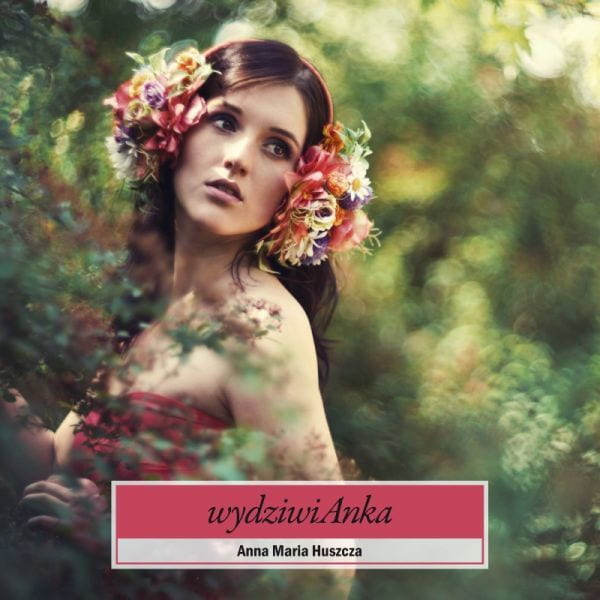 wydziwiAnka
wydziwiAnka
Anna Maria Huszcza: Sonosfera for saxophone quartet, female voice and electronics; SaHarBAD for alto saxophone and harp; Kielmin for electronics; [untitled]; the wall for alto saxophone and piano; EtLuda for electronics; AbySsus for soprano and tenor saxophones and electronics; Nihanja for 13 saxophones
Zuzanna Elster – harp; Pablo Sánchez-Escariche Gasch – alt saxophone; Paweł Gusnar – saxophone; Andrzej Karałow – piano; LadieSaxophone Quartet; SOS Saxophone Orchestra
Requiem Records DUX 1380 (April 2016)
wydziwiAnki is the first monographic album of the composer Anna Maria Huszcza, featuring an unusual mix of electronic sounds, folk music and saxophone. Combining opposites, in this case folk music and electronics, is the leitmotiv of wydziwiAnki. The electronic layers include elements such as transformed recordings of singer Veronica Partyka, devilish sounds of the violin, of pipes and drums, and Polish folk songs performed by Walerii Żarnoch, Adama Struga, Anny Mikulskiej and Echo Łysicy.
The album is dominated by saxophone compositions, appearing as a solo instrument with electronic accompaniment (AbySsus, Intercosmic), in duos with harp and piano (SaHarBAD, the wall), in a quartet with electronics and “scream-singing” (śpiewokrzyk) (Sonosfera) as well as in a thirteen orchestra (Nihanja). The recording features musicians from Poland, Slovenia and Spain: Paweł Gusnar (saxophones), Zuzanna Elster (harp), Pablo Sánchez Escariche Gasch (alto saxophone), Andrzej Karałow (piano), LadieSaxophone SOS Saxophone Quartet and Orchestra.
 Premiere
Premiere
Ignacy Zalewski: Mazurek; Graziane Finzi: Impression Tango; Andrzej Karałow: Karałow notturno; Barbara Kaszuba: Skrzyp-ak. Humoresque; Bartosz Kowalski-Banasewicz: In Affecto for solo violin; Miłosz Bembinow: Cantus Harmonicus for solo accordion; Arvo Pärt: Fratres (1977, 1980) to Elena & Gidon Kremer; Edward Sielicki: Rapido; Yuji Takahashi: Le double de Paganini; Rodion Shchedrin: Imitating Albeniz
Iwo Jedynecki – accordion, Karolina Mikołajczyk – violin
DUX 1362
“Premiere” is the phonographic debut of Duo Karolina Mikołajczyk & Iwo Jedynecki. It is the world’s first CD with new music performed by a duo of violin and accordion. Surprising sounds from these instruments are present in profoundly interesting and diverse compositions of the 20th and 21st centuries.
The duo has performed all the album’s pieces in concerts, often in the presence of their composers. The enthusiastic and favorable response from the audiences encouraged them to record this CD. It contains music by three generations of composers, whose life’s work is contemporary to the duo. It consists of works by Polish composers, some of whose works were dedicated to them: Milosz Bembinow, Barbara Kaszuba, Andrew Karałowa, Bartosz Kowalski, Edwarda Sielickiego, Ignacy Zalewski; and foreign artists like Gracie Finzi, Arvo Pärt, Rodion Szczedrin, and Yuji Takahashi.

Made In Poland
Dawid Lubowicz: Ballad on the Death of Janosik for improvising string quartet and string orchestra; Karol Szymanowski: String Quartet No. 2, Op. 56 for string orchestra; Karol Szymanowski / Paweł Kochański: Highlander Dance from the ballet Harnasie, Op. 55 for string orchestra; Krzysztof Lenczowski: Iława for improvising string quartet and string orchestra; Grażyna Bacewicz: Concerto for string orchestra; Krzysztof Lenczowski: Namysłowiak for improvising string quartet and string orchestra; Mikołaj Górecki: Concerto Notturno for Violin and String Orchestra
Leopoldinum Chamber Orchestra, Atom String Quartet, Christian Danowicz – violin solo, concertmaster
DUX 1298
At least since the time of Nicholas Zieleński, music has been undoubtedly one of the best Polish export goods. Karol Szymanowski and Grażyna Bacewicz certainly occupy the leading positions in the 20th century. Their style has created patterns in composition—such as folklore interest, formal discipline, and melodic invention—which are still a point of reference for contemporary composers. An interesting example of this is the work of Mikołaj Górecki or members of the Atom String Quartet. The album, in which the Quartet was invited to perform by the Chamber Orchestra Leopoldinum, introduces bold interpretations with elements of improvisation and folk music.
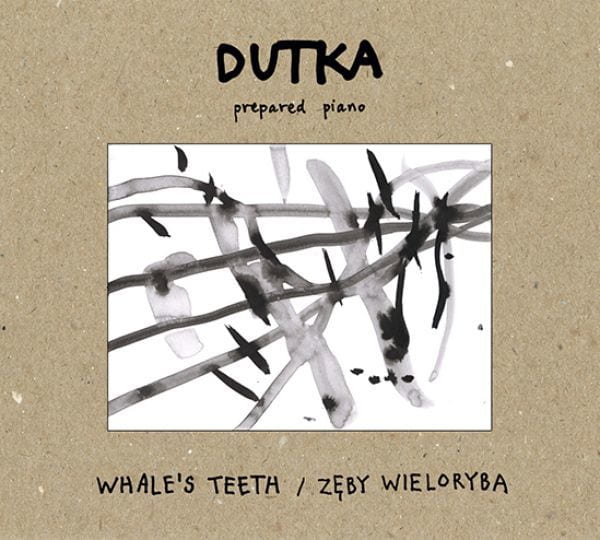 Whale’s Teeth
Whale’s Teeth
Marcin Dutka: Whale’s Teeth
Marcin Dutka – prepared piano
DUX 1379
It would seem that the glorious years of the prepared piano have already passed, but the instrument still intrigues modern composers and, above all, improvisers. An example of this is Whale’s Teeth—a cycle of eight works performed ad libitum by Marcin Dutka. The intuitive improvisation recorded in 2004 explores the entire sound universe of the piano. Marcin Dutka has made a single orchestra instrument, using his painting experience to derive the maximum possibilities of color.
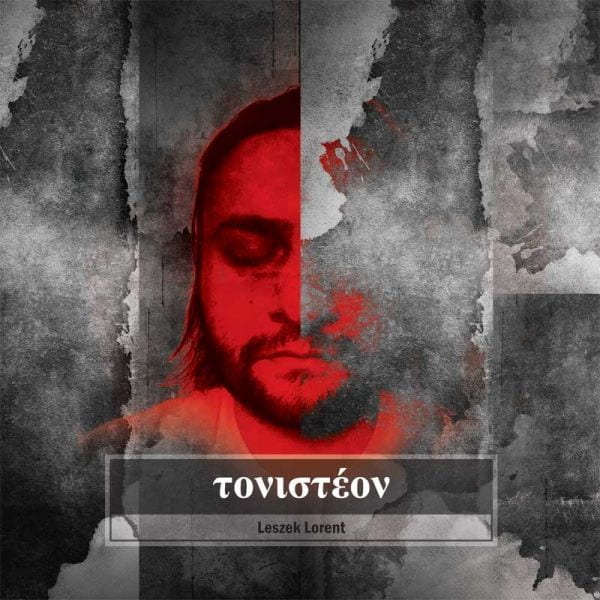 Leszek Lorent Tonisteon
Leszek Lorent Tonisteon
Iannis Xenakis: Idmen b; Dariusz Przybylski: Hyperion; Ignacy Zalewski: Tonisteon; Marcin Błażewicz: Ineffabilis
Leszek Lorent – percussion
DUX 1361
“I have invited contemporary composers to work on their Xenakian power model, where sharp beats, accents, polyphony, and dynamic extremes play an overriding role. Marcin Błażewicz (a student of Xenakis) and Dariusz Przybylski and Ignacy Zalewski (graduates of Marcin Błażewicz’s composition class) composed works for large-scale multiprocessor installations while under the influence of the widely understood inspiration of the Greek music. The performances and recordings were a real challenge for me.”– Leszek Lorent
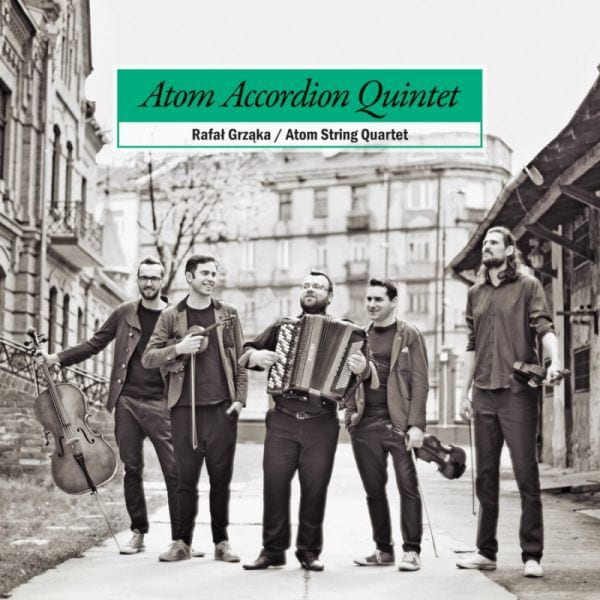 Rafał Grząka & Atom String Quartet Atom Accordion Quintet
Rafał Grząka & Atom String Quartet Atom Accordion Quintet
Mikołaj Majkusiak: up2U; Piotr Wróbel: Suita 3-5-7; Krzysztof Lenczowski: Atom Accordion Quintet; Nikola Kołodziejczyk: Subliminal Folk Suite
Atom String Quartet; Rafał Grząka – accordion
DUX 1341
The initiator and originator of the project is the accordionist Rafał Grząka. The idea of creating a CD was to prove to the public that contemporary music can be enjoyable and understandable for a wider audience—not only for real music lovers. The string quartet with accordion and the integration of such streams as folk, classical music, contemporary and jazz are the most important features of the presented album. Young Polish composers and great performers guarantee a high artistic level of music, but also great fun, surprises and allusions to music from a wide variety of genres.
 Fryderyk Chopin – Maria Korecka – Soszkowsk
Fryderyk Chopin – Maria Korecka – Soszkowsk
Fryderyk Chopin: Preludes Op. 28; Andante spianato and Polonaise in E flat major Op. 22
Maria Korecka-Soszkowska – piano
DUX 1372
Maria Korecka-Soszkowska, excellent pianist and experienced pedagogue, presents his vision of the cycle of Preludes from opus 28 – one of the most characteristic works of Fryderyk Chopin. This ingenious cycle perfected and completed during the winter (1838/39) of Chopin’s stay in Majorca, carries with it many of the heavy atmosphere of those days, deepened by composer’s illness and varying auras of aura.
The Grande Polonaise Brillante, from Andante Spianato, was completed in 1836 by a virtuoso piece, composed in a romantic Brillante style, characteristic of Chopin’s youthful Warsaw period.
